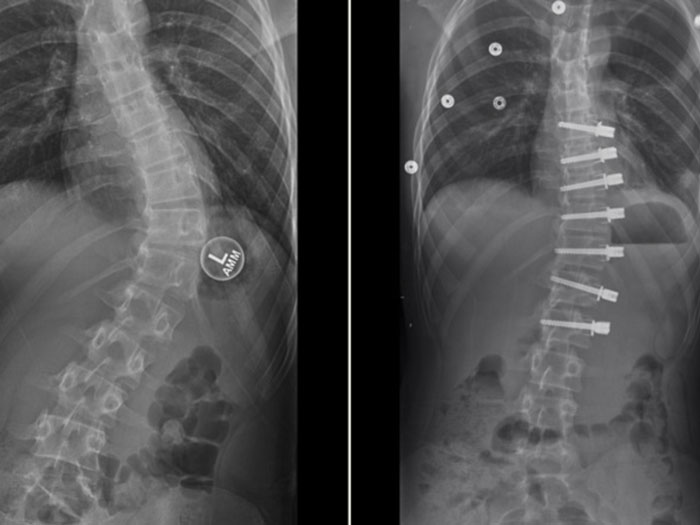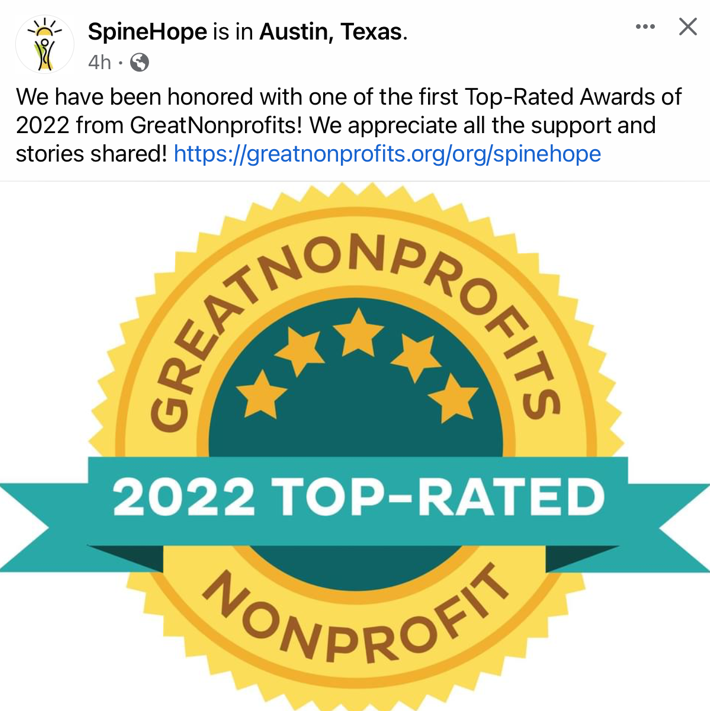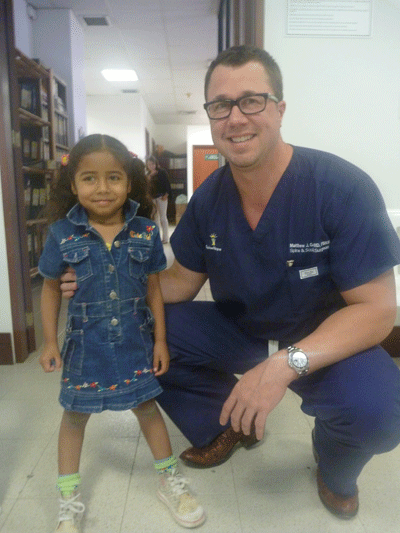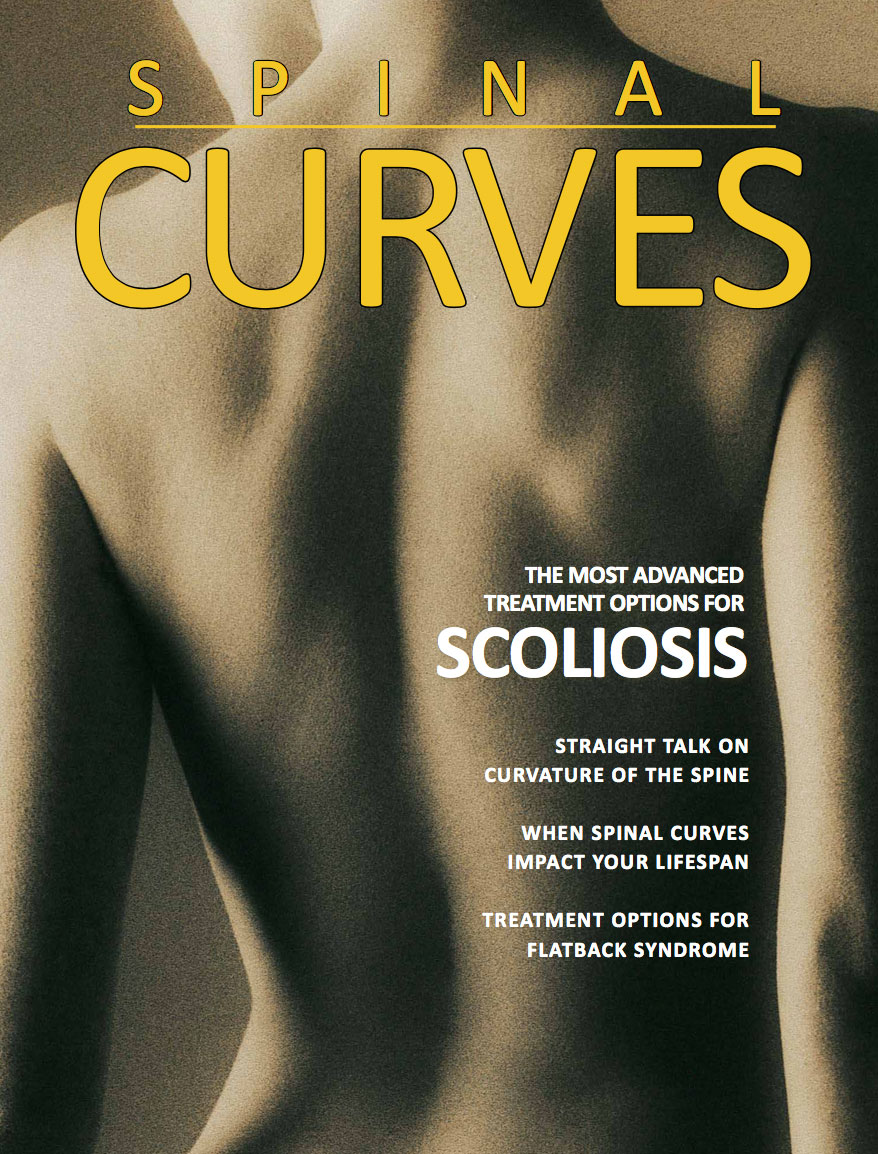New BRAIVE tethering technology offers new treatment of scoliosis in children, teens
Dell Children's Medical Center is the second hospital in the nation activated for use of the new technology
According to the American Academy of Orthopedic Surgeons, scoliosis is a condition that causes the spine to curve sideways. There are several different types of scoliosis that affect children and adolescents. By far, the most common type is "idiopathic," which means the exact cause is not known.
Most cases of idiopathic scoliosis occur between age 10 and the time a child is fully grown. A doctor may recommend surgery if the child's curve is greater than 45 to 50 degrees or if bracing did not stop the curve from reaching this point.
Dell Children’s Medical Center is the second hospital in the nation activated for the Braive™ Growth Modulation System (GMS) investigational study. The study purpose is to determine the safety and probable benefit of the Braive™ GMS when it is used in the treatment of Juvenile or Adolescent Idiopathic Scoliosis.
The Braive™ GMS is designed to treat Juvenile or Adolescent Idiopathic Scoliosis. The system features a flexible braid which is attached to the front spinal column using metallic vertebral body screws, plates and set screws. As the patient grows, the braid maintains compressive forces (pushes) on the growth plates of the vertebral bodies along the outward side of the curve to correct the curvature of the thoracic spine. The continued growth of the inward side of the curve brings the vertebral bodies back into alignment. The Braive™ GMS is designed to correct the curve and preserve the patient’s growth potential. For more information about the study and the eligibility criteria, please contact Dr. Matthew Geck, orthopedic surgeon at Ascension Texas Spine & Scoliosis, 512-324-3580.

Spine Hope

Colombian kids stand tall, thanks to surgeon.
By Claire Osborn
First reported, Austin American-Statesman, Tuesday, May 26, 2009
One woman walked eight hours to the hospital with her paralyzed son in a wheel-barrow. Another boy arrived with an unusual disease that required doctors to reinforce the weakened bones in his neck. Another child had a tuberculosis infection that paralyzed him.
Those are the kinds of cases that keep Austin spine surgeon Dr. Matthew Geck, 38 returning to Cali, Colombia. "If I fix the children, I can give them a more productive life," he said. "It makes me feel good, and it's a unique opportunity to be able to participate in people's lives."
Geck said his first trip to to Colombia, in 2005 with a medical mission organized by Dr. Steve Mardjetko, persuaded him to start his own nonprofit group to help children with spinal problems.

He said he saw children with severe cases of scoliosis - an abnormal curvature of the spine - who had never been treated. "Little kids were going paralyzed, and people were not even sure what was going on until we got down there," he said.
In 2007, he joined with another scoliosis surgeon, Tony Rinella of Chicago, Illinois, and Ethan Lauer of Houston Texas, the president of a neurodiagnostic testing and monitoring service, to launch SpineHope, which pays for free operations on children and teenagers in Colombia, trains local doctors, and brings children back to the United States if they need more complex spinal care. The children are chosen by another nonprofit in Colombia, he said.
Geck estimated that the nonprofit has raised about $5 million in goods and services, including about $4 million in surgical equipment donated by corporate sponsors. Geck and Rinella have done 50 operations since the group started.
On Friday, Geck left for his sixth trip to Colombia. During his weeklong visit to the Valle del Lili hospital in Cali, Geck said he will operate on 12 children, including an 8 year old girl whose twisted spine needs to be straightened with rods that must be lengthened as she grows. Geck said he will also operate on a 6 year old girl who has Morquio syndrome, a type of dwarfism that can cause underdeveloped neck bones.
Geck, who grew up in Wisconsin, said he has wanted to be a doctor since he was 6 years old. He spent a lot of time at the doctor's office because he had a chronic cough from asthma but did not get the correct diagnosis for years, he said.
He was accepted to medical school at age 17, but to become a more "well-rounded" person, he said, he got a philosophy degree at the University of Wisconsin before going to medical school. Geck said he moved to Austin in 2002 after a local doctor told him there was a lot of complex spinal work to do in the area. Married to actress Hili Park, Geck has two children and is the Co-Chief at Texas Spine & Scoliosis.
He said he wants the nonprofit to expand to Brazil and the Middle East.
Dell Children's Medical Center has also agreed to support the nonprofit by allowing Colombian children to stay at the hospital as patients at no charge, Geck said.
They boy whose mother delivered him in a wheelbarrow is now walking again, Geck said. He had severe scoliosis that Geck said he was able to correct.
"Children also write you better thank-you notes," Geck said. He keeps a picture of one on his laptop computer: a crayon drawing of a dog's face, with the words "muchas gracias."
For more information or to donate to SpineHope, go to SpineHope.org.






